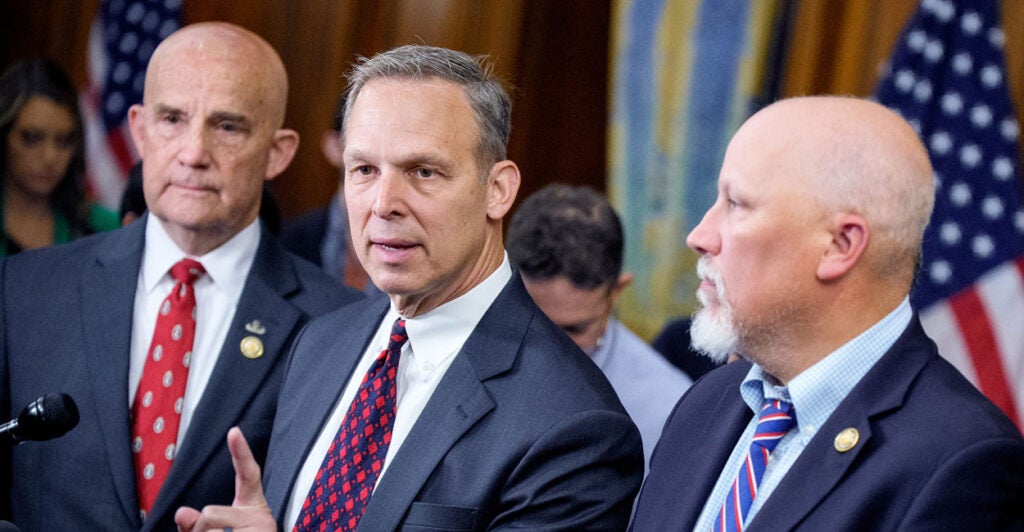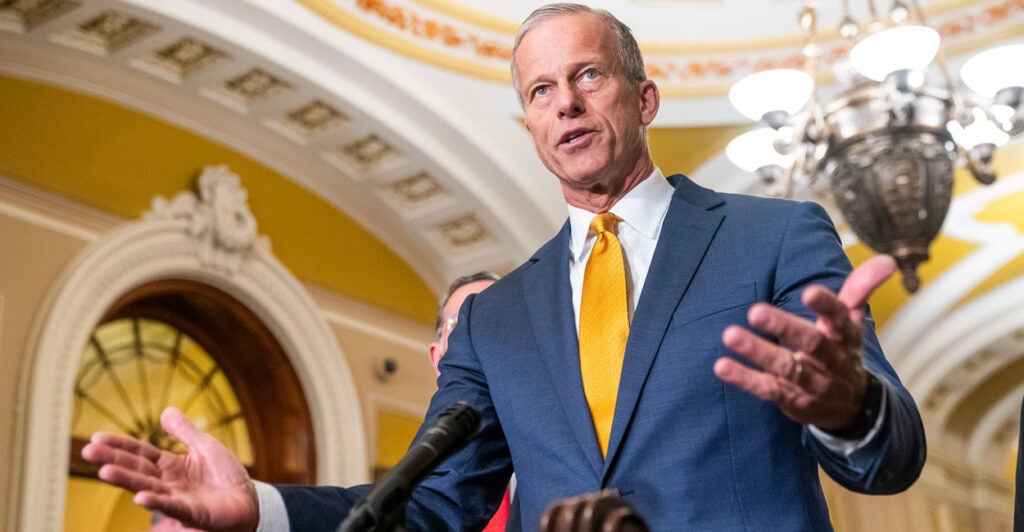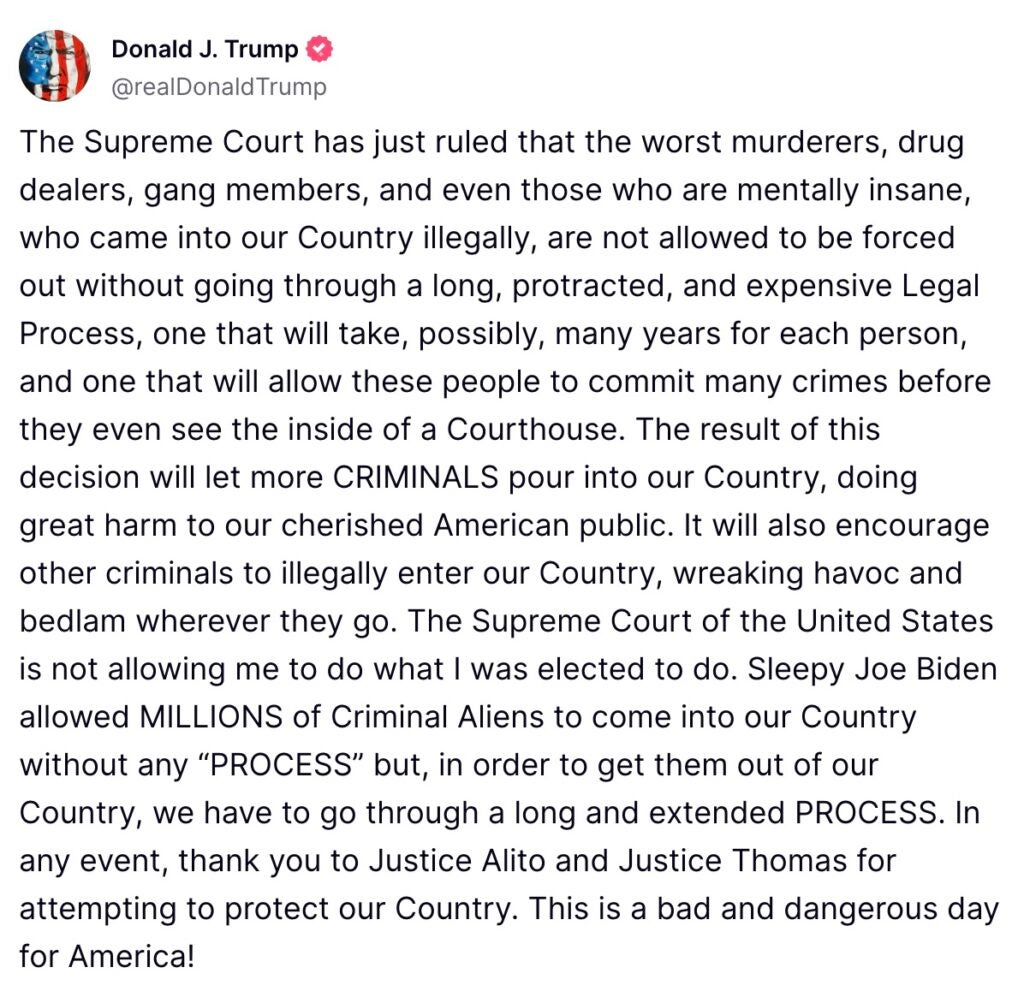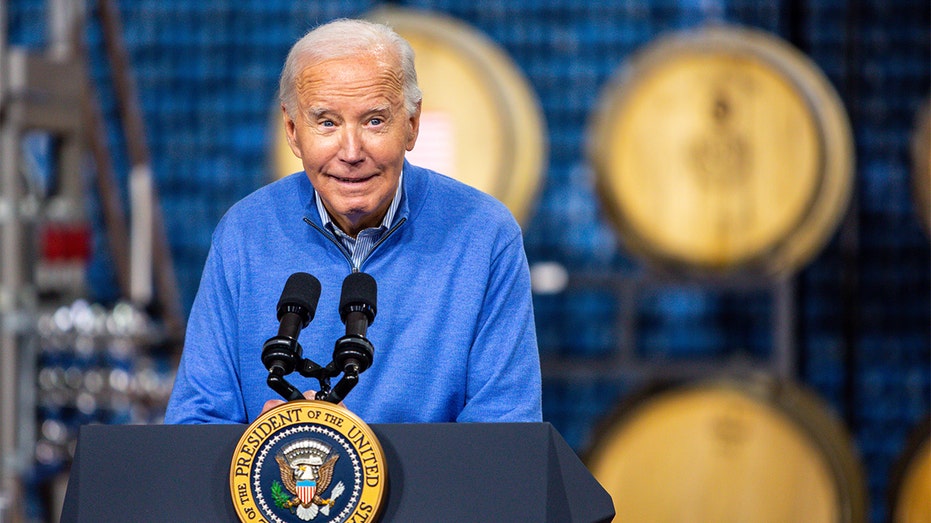Pennsylvania Republican Rep. Scott Perry voted for the “big, beautiful” budget reconciliation bill, but he’s not very happy about it. The bill passed by 215-214 margin, with one “present” vote.
In an exclusive interview with The Daily Signal, he discussed what happened behind closed doors in last-minute negotiations between congressional leadership, White House staff and holdouts from the fiscally conservative House Freedom Caucus.
“My biggest reservations, quite honestly, generally still remain,” he told The Daily Signal shortly after voting for the budget reconciliation bill. “All the savings happen in the 10-year window, but of course, as always in Washington D.C., at the end of the ten-year window.”
Specifically, Perry wishes the bill had more aggressively reformed Medicaid and Biden-era green energy tax credits to cut spending and calm already uneasy bond markets.
If signed into law, the budget reconciliation bill would fulfill many of President Donald Trump’s campaign promises, such as extending his 2017 tax cuts and funding border security.
But less than 24 hours before voting on the bill, Perry and fellow fiscal hawks from the House Freedom Caucus said they had received an offer the night before from the White House to include more aggressive cost-saving provisions in the bill.
 (From left) Freedom Caucus Reps. Keith Self of Texas, Scott Perry of Pennsylvania and Chip Roy of Texas discussing the White House’s “offer” Wednesday. (Andrew Harnik/Getty Images)
(From left) Freedom Caucus Reps. Keith Self of Texas, Scott Perry of Pennsylvania and Chip Roy of Texas discussing the White House’s “offer” Wednesday. (Andrew Harnik/Getty Images)This was denied by a White House representative, who said that they were presented with policy options, but “no deal.”
Perry rejects this narrative.
“Regardless of what staff at the White House says, we were given an offer, not options,” said Perry. “We were given an offer, and we took it. And then to save face for themselves, they backtracked on it.”
The White House was not able to immediately respond to a request for comment on Perry’s claims they “backtracked” from an offer.
Perry would not go into the details of this offer, but he told The Daily Signal that it was appealing to fiscal conservatives.
“At this point I think it’s kind of moot, but just suffice to say that it was relevant enough. I will say, I will—no, I better not,” he said, when asked for information.
“It was just relevant enough to get the vast majority of the people that had significant concerns from our viewpoint to ‘yes,’ but it never materialized once we agreed to it.”
Shortly after announcing this offer, Perry and his fellow Freedom Caucus members went to the White House to meet with Trump and Republican House Leadership.
Asked if any parts of the previous offer were put back on the table after their visit to the White House, Perry said, “No, not one of them.”
After the Freedom Caucus members and Speaker of the House Mike Johnson, R-La., came back from the White House, the Speaker announced that they had come to a working agreement.
““You will see how all of this is resolved,” he said. “I think we can resolve their concerns, and it’ll be probably some combination of work by the president in these areas, as well as here in Congress. So there may be executive orders relating to some of these issues in the near future.”
Perry is skeptical of these claims.
“Outside of reconciliation at this point, I don’t see that as very viable,” he told The Daily Signal. The budget reconciliation process is exempt from the Senate’s typical 60-vote requirement for ending debate.
But a few hours after Johnson got back from the White House, he released a “manager’s amendment”—the final draft of the bill that came out of the House Rules Committee.
This draft contained key concessions to Freedom Caucus members, such as earlier implementation of Medicaid work requirements, and some new limits on green energy tax credits.
Perry says that this amendment was “a combination of the speaker [knowing] where we were, but also out of the conversation at the White House.”
Despite calling his “yes” on reconciliation, a “tough vote,” Perry is proud of how he and his caucus shaped the entire process.
“We pushed as hard as we could. We improved the bill and process immensely,” he said.
“You recognize and realize the Republican conference went [on retreat] to Doral in Florida and came back with a recommendation of $30 billion in spending cuts? And now we’re at what—1.6 or 1.7 [trillion]… and those are directly due to the efforts of the Freedom Caucus.”
 Senate Majority Leader John Thune, R-S.D. Perry said that the Senate may alter the reconciliation bill (Allison Robbert/The Washington Post via Getty Images)
Senate Majority Leader John Thune, R-S.D. Perry said that the Senate may alter the reconciliation bill (Allison Robbert/The Washington Post via Getty Images)Despite his continued reservations about the bill, Perry says that the Senate could still change it in a way that he’d prefer.
“We are hoping to make some changes in the Senate. Now, they could go the other way too, so we have obvious reservations about that.”
It’s almost conventional wisdom in Washington that the Senate does not make bills more fiscally conservative. But Perry says they might have a chance to buck that trend.
“That has been the history,” said Perry. “Now we hear that we have a much more conservative Senate now, and some say arguably more conservative than the House.”
The post Skeptic of ‘Big, Beautiful Bill’ Tells All on Last Minute Negotiations appeared first on The Daily Signal.
.png)















 English (US)
English (US)